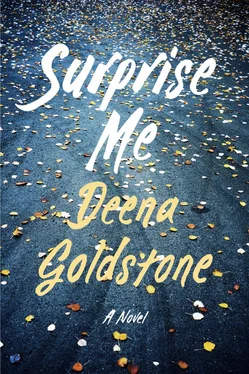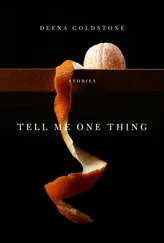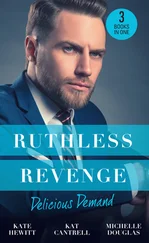“Well, yes, it’s a sort of…vote of confidence.”
“It doesn’t feel that way.”
“Well, that’s your problem.” What does she want of him?
“It feels like a cop-out.”
He starts to redden, a flush working its way up his neck. He’s trying with this girl, he really is, and she won’t meet him halfway.
“Take a leap, dammit, Isabelle!”
And she flinches at his tone — frustrated, angry, maybe dismissive.
“You want to be Melanie, be Melanie.”
And the lie comes flying out. “Who said I wanted to be—”
“Have some guts!” he almost shouts, piercing her at the core of her worst and most shameful flaw.
And now they’ve both said too much. She wants to scream at him, How am I supposed to do what you want? He bites his tongue to prevent an inappropriate apology from spilling forth, asking forgiveness for transgressions well beyond the scope of this student, this room.
God, he wants it to be different with this girl. He pushes back from his desk. He can’t look at her. It’s better to stare out the window and let a cavern of silence swallow up their heated emotions.
He hears her get up, walk to the door, open it. Then: “Why do writers have writer’s block?”
He turns quickly, caught off guard as she had hoped, but he doesn’t hesitate. He tells her what he believes. “Self-loathing.”
—
REMORSE. AS FAMILIAR TO DANIEL as his own hand. A neat, smooth package with no corners or edges he can use to pick it open and air it out. A tight, hard ball of regret he turns over and over as the shadows lengthen in his office and he sits marooned in his dilapidated easy chair.
—
ISABELLE SWIMS LAPS IN THE campus pool. There’s no sound but the muffled slap of her arms through the water, no expectations beyond hitting each of the walls and turning toward the next. Whenever she wants the noise in her life to stop, Isabelle gets in a pool and does laps.
In the middle of an unexceptional Tuesday morning, there are only a few other dedicated swimmers, as determined as Isabelle to finish their laps. She registers their presence peripherally, but the last thing she wants is to acknowledge any of them. She needs the isolation of the water. She needs to stop thinking.
When she’s done, when she can no longer lift her tired arms one more time, there’s a calm that comes. And from that calm, she hopes, a sense of what to do.
Walking home, her long hair wet and dripping, her body humming quietly with exhaustion, Isabelle realizes she has to apologize. He doesn’t deserve her anger.
—
THE NEXT DAY FINDS ISABELLE EXAMINING the dusty bookshelves of Seaman’s Rare and Used Books on Lorenzo Street, close to school. Unlike UCLA, which has transformed the part of Los Angeles known as Westwood into a college town, Chandler hasn’t managed to do much to gentrify the streets surrounding the campus.
As beautiful as the college itself is, up a gently sloping hill from the urban sprawl, the city streets below it are a mixture of small appliance shops, fast-food restaurants — Popeyes, Burger King — and one sprawling mall anchored by a Food 4 Less and a 99 Cents Only Store. Here and there on the side streets are a few shops and a café or two which cater to the students and professors up the hill. Seaman’s is one of those.
It is a tiny place, jam-packed with books stacked in piles on the floor and on chairs and crammed tightly onto flimsy shelves. The only way to find something is to devote several hours to browsing or ask Oscar, who is permanently installed, it seems, behind the front counter. He must be in his eighties, but it’s hard to tell. It’s entirely possible he’s in his sixties or even younger. He has the look of a person who never sees the light of day. Pasty skin, thinning white hair, rail thin, spine curved like a C, chain smoking. And always reading a book in poor light.
There’s little light throughout the store. Isabelle can barely read the titles in the poetry section, which takes up a back corner of the store, but finally she finds what she’s looking for, a copy of Philip Levine’s What Work Is .
She wants to take Daniel a small present, a way of apologizing for yesterday, and she remembers from an interview he once gave that Philip Levine, a working-class poet from Detroit, had had a huge influence on his decision to become a writer. If Daniel could write about what he knew — his own hardscrabble neighborhood of Erie, the men who broke their backs doing manual labor and broke their families with the resentment that kind of life causes — well, then, maybe he could become a writer, too.
Finally she finds the slim volume with its brown cover and simple black-and-white photograph of a child at work in a factory and takes it to Oscar at the front desk. He never rings up a purchase without commenting upon it. He may well have read every book in his store.
“He won the National Book Award for this collection, did you know?”
Isabelle shakes her head. She doesn’t much like poetry; it seems a code she hasn’t yet cracked. “It’s a gift.”
“So you want it gift wrapped?”
She looks around the dusty counter with its ashtrays, cigarette butts, stacked books, and old magazines in teetering piles. “You gift wrap?”
“Are you kidding me?” And he grins, his yellow teeth stained from decades of smoke poking through his thin lips. “I always ask just for the reaction.”
“You’re a mean man, Oscar,” Isabelle says as she takes the small paper bag he finds for her book, and he chuckles.
—
SHE KNOWS WHERE DANIEL LIVES. In the small community of Chandler College, things like that are common knowledge. There’s a row of houses bordering the campus that the college rents out to professors at a much-reduced rate, and with a couple of questions to the right people, it’s easy for Isabelle to find out which one is his.
She walks there now. Her plan is to leave the book in his mailbox with a little note she’s already written. It simply says, Next Tuesday can we start over? Isabelle. She spent more than an hour trying out different messages, everything from an out-and-out apology to a note that didn’t mention what had happened between them at all. She feels guilty for exploiting what his son told her — that he has writer’s block — to wound him. She has no idea what he’s feeling — disappointed in her, probably, ready to wash his hands of her; she’s not sure. It never occurs to her that Daniel’s guilt may be exponentially larger than hers.
He doesn’t have a mailbox, not the kind that stands on a post near the curb. He has a mail slot in his front door, which means she has to walk up the front path of his house and try to slip the book in silently.
The problem is, there’s Daniel, watching her from one of the living room windows. So now what should she do? She realizes she has to ring the doorbell. She has to have some sort of interaction, which is the last thing she wants. Keep it short, she tells herself. Don’t make conversation. Leave quickly.
When her foot reaches the doormat, a black rubber number with the school crest on it, Daniel opens the door. He’s barefoot, wearing old jeans that sag even on his ample frame, and a rumpled striped sweater with a tear along the neck seam. He hasn’t shaved and his beard is laced with white. He looks terrible. Older. He doesn’t say anything, simply waits for her to start.
“I was at Oscar’s bookshop, you know, on Lorenzo, and I saw this book of poems, and I remembered that you said in some interview that Philip Levine was a strong influence for you, and I thought I’d pick it up and give it to you…” She trails off. He still hasn’t said anything. “You’ve probably got it anyway,” she says as she hands it to him.
Читать дальше












